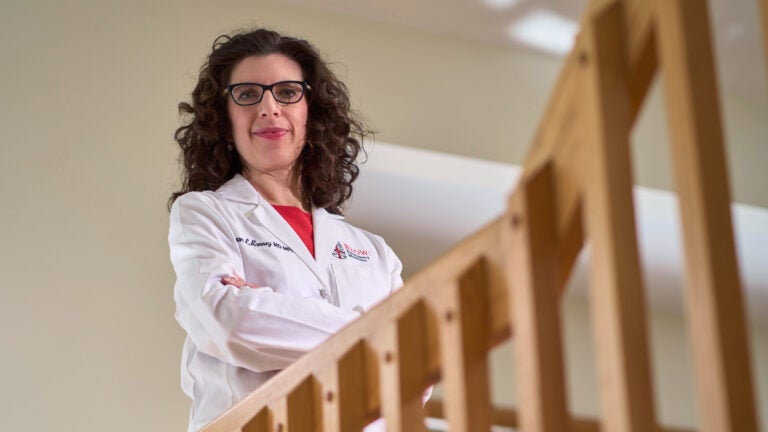Coronavirus
“This is not about assuaging parental anxiety … This is about a simple jab that truly reduces risk.”
The Advisory Committee on Immunization Practices (ACIP), which advises the Centers for Disease Control and Prevention (CDC), will take a vote Tuesday on whether to authorize the Pfizer COVID-19 vaccine for children aged 5 to 11. This will be the second to final step before the vaccine gets released to the public; the last say will be by CDC Director Rochelle Walensky.
Public health officials and experts, meanwhile, have taken to various platforms to promote the vaccine for children.
These include Dr. Megan Ranney, an emergency room physician at Brown Emergency Medicine. Ranney, who has a 10-year-old son, took to Twitter Tuesday morning to outline the reasons why it matters whether children get the vaccine shot.
COVID-19 was the leading cause of death around the world in 2020 and was among the top 10 causes for deaths in children, Ranney mentioned. The COVID-19 vaccine, however, has shown that it prevents hospitalization and reduces deaths from the virus significantly.
“This is not about assuaging parental anxiety,” Ranney wrote. “This is about a simple jab that truly reduces risk.”
Taking the vaccine also increases immunity against COVID, according to Ranney. A CDC study found that immunity from vaccines was more protective than the “natural immunity” one might acquire from contracting COVID-19.
The Pfizer vaccine for children of this age group is also safe and 90.7% effective, according to the FDA. Trials run by Pfizer showed that no serious side effects were monitored in the approximately 3,100 children who participated in the test run.
For those concerned about their children contracting myocarditis — federal regulators are reviewing data on a possible link between Moderna’s coronavirus vaccine and the rare heart problem — Ranney says they should be vaccinated with the Pfizer vaccine. The vaccine about to be authorized for 5- to 11-year-olds contains only one-third the dose of the adult vaccine shot. COVID-19 is also much more likely than the vaccine to cause myocarditis, approximately 16 times of a higher incidence, Ranney says.
“You want them to avoid #LongCovid, MISC, or other complications? Yes: the vaccine will do all that, too, by preventing infection,” Ranney wrote.
Getting children their vaccine also plays a role in the larger community and public good, Ranney said. Vaccines not only protect the child who has gotten the vaccine, but also protects others in the community from contracting the virus and spreading it among one another.
With students having returned to school in the fall, Ranney says it is important to vaccinate children in order to keep them in school.
“Being vaxxed helps keep kids in school in case of exposure — in addition to reducing the [number] of school cases,” Ranney wrote.
Massachusetts, which has a mask mandate in place in public schools, has an exemption for schools that have reached at least an 80% vaccination rate among their staff, teachers and students.
In schools where students test positive for COVID-19, schools have also implemented quarantine procedures including “Test and Stay,” which allows students who have been exposed to a COVID-19 case to stay in school unless they test positive.
The vaccine for this age group, Ranney says, is expected to be released later this week or early next week, “if all goes as expected.”
“You wouldn’t put your baby in a car without a car seat,” she wrote. “These vaccines are MORE effective than a car seat.”
Newsletter Signup
Stay up to date on all the latest news from Boston.com






